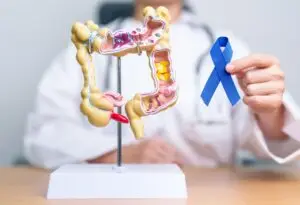Reviewed by Dianne Hinton, NP, PA of Forum Health Modesto
Did you know that you’re sharing your body with many different microorganisms, among which you’ll find bacteria of all sorts? Most of them are located in your digestive tract, they make up your gut microbiome, and their primary roles are to help your body absorb the nutrients from food, prevent diseases and infections, boost your immune system resilience, and many other to boot.
Among other lifestyle choices that can make or break your gut health, the food you consume defines the balance of the “good” and “bad” bacteria residing in your gut. To help you maintain that balance of good bacteria in your gut, here are some practical food tips to keep in mind!
Fermented Foods Feed Your Bacteria
Known for their probiotic content, fermented foods like yogurt, sauerkraut, kimchi, and kefir are all gut-friendly. Packed with good bacterial strains that can enrich your gut microbiome, these foods can be one of the most effective allies in balancing your gut.
Pro tip: make sure that you choose yogurts and other fermented foods that don’t contain added sugar and similar ingredients. That’s why not all yogurt brands are created equal and it’s essential that you find those natural, minimally processed fermented foods for your menu.
A Diverse Menu for Balance
We cannot repeat this too many times: there is no one-size-fits-all when it comes to nutrition and health. With so many food sensitivities and allergies around, not to mention specific gut diseases like Celiac disease, you need to tailor a plan that suits you. However, one rule of thumb for gut health is diversity.
The more versatile your menu is, the more essential vitamins, minerals, macronutrients, and fiber you’ll be able to consume to keep your gut in good shape. From whole grains, polyphenol-packed foods like blueberries and green tea, all the way to an entire spectrum of fruits and veggies, your gut needs the whole palette.
Replace highly caloric, but nutrient-devoid foods with nutrient-dense, natural groceries. Diversity in your menu strengthens the diversity of bacteria in your gut, which is essential for your health.
Probiotics and Prebiotics to the Rescue
If your diet has been subpar for a longer period of time, or you’re having trouble balancing your meals, additional support from supplements can help you achieve optimal gut health. Containing all the right gut-friendly probiotics and prebiotics, a supplement can help restore that natural bacterial balance in your digestive tract.
Just make sure you go for supplements that have bacterial strains resistant to your stomach acid, so that they can actually reach the intestines and help restore your gut balance. Remember, supplements are there to support, not replace your healthy eating habits, so make sure your nutrition is improving, too.
Saying No to Processed Foods and Alcohol
Much like what you do eat affects your microbiome to support it, so does avoiding certain foods. Too many people focus on pure calorie-counting to determine how much they can eat in a day, but you should also be mindful of the quality of food you choose.
Less processed foods, preferably local and seasonal goods, and whole foods in general are better for your gut. Industrial processing tends to eliminate most of the inherent nutrients from food, and replace them with chemicals that enhance its flavor, texture, and shelf life. Whole, minimally processed foods are the best sources of nutrition for your gut bacteria.
Keeping alcohol consumption to a minimum is another way to keep your gut healthy and happy. The occasional glass of wine is fine, but more than that can have a negative impact on your gut microbiome.
Antibiotics Only When You Need Them
It’s natural to want to go that extra mile in the middle of a health crisis of these proportions. But reaching for antibiotics every time you get the sniffles isn’t the best way to go. Antibiotics don’t agree well with your gut microbiota, especially if you overconsume them in situations when you can rely on better nutrition and lifestyle habits.
Use antibiotics only when really necessary and prescribed by your doctor. Otherwise, go for anti-inflammatory foods and if you catch COVID-19 or any other virus, and grab antiviral medicine that won’t disrupt your gut health.
Both overconsuming certain foods and leaving some ingredients out of your diet can have a negative impact on your gut health and the balance of the present bacteria. The process of finding the right menu for your gut can be complex.






